
Reproduction and Fertility
Scope & Guideline
Shaping the future of obstetrics and gynecology.
Introduction
Aims and Scopes
- Reproductive Biology and Health:
The journal emphasizes research on reproductive biology, including studies on gametogenesis, embryonic development, and the hormonal regulation of reproduction. - Infertility and Assisted Reproductive Technologies (ART):
A core focus is on infertility treatments and advancements in assisted reproductive technologies, including in vitro fertilization (IVF), intrauterine insemination, and embryo transfer methods. - Endometriosis and Related Disorders:
Research on endometriosis, its pathophysiology, management, and the impact on fertility is a significant area of interest, reflecting the increasing prevalence of this condition. - Microbiome and Fertility:
The exploration of the microbiome's role in reproductive health, including its effects on fertility and pregnancy outcomes, is a unique and emerging focus in the journal. - Comparative Reproductive Studies:
The journal includes comparative studies across different species, providing insights that may inform reproductive practices in both human and veterinary medicine. - Ethical and Societal Implications:
Discussion of ethical considerations surrounding reproductive technologies and practices is also covered, reflecting the journal's commitment to addressing societal impacts.
Trending and Emerging
- Microbiome Research in Reproductive Health:
The increasing focus on the microbiome's impact on fertility and reproductive health is a notable trend, as studies explore its role in conditions like endometriosis and pregnancy outcomes. - Personalized and Precision Medicine Approaches:
There is a growing emphasis on personalized medicine in fertility treatment, with research investigating individualized approaches to ART and the impact of genetic and environmental factors. - Innovative Technologies in Assisted Reproduction:
Advancements in technology, such as the use of artificial intelligence in IVF and the development of novel cryopreservation techniques, are trending topics that reflect the journal's commitment to innovation. - Interdisciplinary Approaches to Reproductive Health:
Research that integrates insights from various fields, such as genetics, endocrinology, and psychology, to address complex reproductive health issues is becoming increasingly prominent. - Global Health and Fertility Access:
The journal is reflecting a trend towards addressing fertility care in low- and middle-income countries, emphasizing the need for equitable access to reproductive health services.
Declining or Waning
- Traditional Fertility Treatments:
Research specifically centered on traditional fertility treatments without consideration of novel approaches or technologies is becoming less prevalent, as the field shifts towards more innovative solutions. - Basic Animal Models:
There is a noticeable reduction in studies solely relying on basic animal models without translational relevance to human fertility. The focus is increasingly on models that provide insights applicable to clinical settings. - General Lifestyle Factors in Reproduction:
While lifestyle factors affecting fertility were once a significant focus, recent publications indicate a waning interest in broad discussions without specific mechanistic insights or targeted interventions. - Static Reviews on Common Conditions:
The publication of static reviews on common reproductive health conditions without new data or perspectives appears to be declining, as the journal favors more dynamic, evidence-based research.
Similar Journals
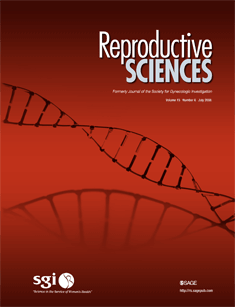
Reproductive Sciences
Exploring the Frontiers of Reproductive SciencesReproductive Sciences is a premier journal published by SPRINGER HEIDELBERG, dedicated to the field of obstetrics and gynecology. With its ISSN 1933-7191 and E-ISSN 1933-7205, the journal has established itself as a leading source of high-quality research and clinical insights since its inception in 2007, and continues to converge its scope into 2024. Currently ranked in the Q1 category for obstetrics and gynecology, it holds the 43rd position among 209 journals in the Scopus rankings, underscoring its influence and relevance within the medical community. This journal is particularly dedicated to advancing knowledge in reproductive health, providing a platform for innovative research and clinical practices through both traditional and open access options. Located in Switzerland with an address in Heidelberg, Germany, Reproductive Sciences is not just a publication; it is a vital resource for researchers, professionals, and students seeking to make impactful contributions to the field of reproductive health.
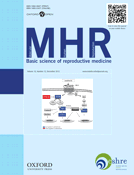
MOLECULAR HUMAN REPRODUCTION
Connecting Molecular Mechanisms to Clinical Practice in ReproductionMOLECULAR HUMAN REPRODUCTION, published by Oxford University Press, is a pivotal journal dedicated to advancing the field of reproductive biology. Since its inception in 1995, the journal has been recognized for its rigorous peer-reviewed research and substantial contributions to the understanding of molecular mechanisms underlying human reproduction. With an impressive impact factor and ranked within the top tiers (Q1 and Q2) across diverse categories including Embryology, Obstetrics and Gynecology, and Reproductive Medicine, it stands as an essential resource for researchers, healthcare professionals, and students alike. The journal aims to publish cutting-edge research that explores the complexities of human reproduction at the molecular and cellular levels, fostering a deeper understanding that can be translated into clinical practice. Although it currently operates under a subscription model, the valuable insights and groundbreaking findings featured within its pages continue to influence the trajectory of reproductive health research globally. Located in the heart of Oxford, United Kingdom, the journal remains committed to addressing vital challenges in the field and promoting innovative scientific dialogue.

Reproductive and Developmental Medicine
Exploring the frontiers of reproductive and developmental medicine.Reproductive and Developmental Medicine is a pioneering open-access journal dedicated to advancing knowledge in the fields of reproductive medicine and developmental biology. Published by LIPPINCOTT WILLIAMS & WILKINS, the journal serves as a platform for researchers, clinicians, and graduate students alike, fostering collaboration and dissemination of innovative research findings. With an ISSN of 2096-2924 and E-ISSN 2589-8728, it has established a significant presence in the academic community since its inception in 2017. The journal is indexed in Scopus and achieved a category quartile ranking of Q3 in Obstetrics and Gynecology and Q4 in Reproductive Medicine as of 2023, highlighting its importance as a resource for cutting-edge studies and reviews in these vital areas. The journal's open-access model ensures that research is readily available to scholars and practitioners worldwide, thus enhancing the global discourse in reproductive health and development. This makes Reproductive and Developmental Medicine an invaluable resource for those dedicated to improving outcomes in obstetrics, gynecology, and reproductive health.
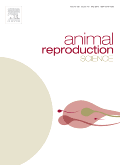
ANIMAL REPRODUCTION SCIENCE
Championing Excellence in Animal Reproduction ResearchANIMAL REPRODUCTION SCIENCE, published by Elsevier, is a leading journal dedicated to the field of animal reproduction and developmental biology. With an ISSN of 0378-4320 and an E-ISSN of 1873-2232, it serves as a vital resource for researchers, professionals, and students interested in advancing their understanding of reproductive mechanisms across various species. The journal has been recognized for its high-quality contributions, achieving a Q1 ranking in Animal Science and Zoology and showcasing its significant impact in the areas of Endocrinology and Veterinary Medicine as per the 2023 category quartiles. Covering a wide range of topics from reproductive physiology to genetic implications, this journal not only highlights innovative research but also fosters interdisciplinary dialogue in the rapidly evolving world of animal science. Though not currently offering open access, it remains a crucial platform for disseminating pivotal research findings from across the globe. With its rich history dating back to 1936, ANIMAL REPRODUCTION SCIENCE continues to drive excellence in animal reproduction studies, positioning itself at the forefront of the field, and solidifying its relevance in both science and industry.
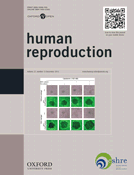
HUMAN REPRODUCTION
Shaping the future of reproductive health through rigorous scholarship.HUMAN REPRODUCTION is a prestigious academic journal published by Oxford University Press, dedicated to advancing the field of reproductive medicine. With an impressive impact factor highlighting its significance, the journal ranks in the top quartile (Q1) for Obstetrics and Gynecology, Rehabilitation, and Reproductive Medicine, showcasing its crucial role in disseminating high-quality research. Founded in 1986, it has become a key resource for researchers, practitioners, and students interested in cutting-edge developments and innovative practices in human reproduction. Despite not currently offering open access, the journal continues to publish a wealth of peer-reviewed articles that contribute substantially to clinical knowledge and practice. With Scopus rankings placing it among the top journals in its categories, HUMAN REPRODUCTION remains an essential platform for discussion and dissemination of vital findings impacting reproductive health globally.
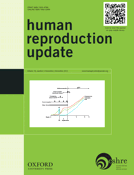
HUMAN REPRODUCTION UPDATE
Pioneering Discoveries in Reproductive HealthHUMAN REPRODUCTION UPDATE, published by Oxford University Press, stands as a leading journal in the fields of Obstetrics and Gynecology and Reproductive Medicine. With an impressive Q1 ranking in both categories according to the 2023 category quartiles and a significant Scopus rank, it is recognized as one of the top journals globally in these disciplines, catering to the most relevant and cutting-edge research. The journal has been a crucial platform for disseminating vital findings and reviews from 1995 to 2024, contributing to advancements in human reproductive health. With its focus on publishing high-quality, peer-reviewed articles, it serves as an essential resource for researchers, healthcare professionals, and students seeking the latest insights and developments in reproductive science. As the journal aims to foster informed discussions and encourage further research, it remains committed to shaping the future of reproductive health and medicine.
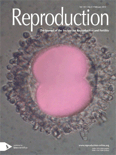
REPRODUCTION
Pioneering discoveries in reproductive and developmental biology.REPRODUCTION, published by BIOSCIENTIFICA LTD, stands at the forefront of research in the fields of reproductive and developmental biology. With a focus on advancing our understanding of reproductive health and mechanisms, the journal has garnered an impressive reputation, consistently ranking in the first quartile for key categories including Embryology, Endocrinology, Obstetrics and Gynecology, and Reproductive Medicine in 2023. Notably, it holds an esteemed position in the Scopus rankings, with high percentiles that reflect its significant impact in the scientific community. The journal is committed to open access, promoting the broad dissemination of high-quality research to facilitate innovative discoveries and interdisciplinary collaboration. Situated in the United Kingdom, REPRODUCTION serves as a vital resource for researchers, professionals, and students eager to contribute to the evolving landscape of reproductive sciences and related fields.
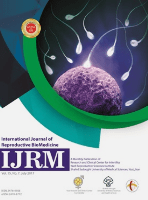
International Journal of Reproductive Biomedicine
Advancing reproductive health through innovative research.The International Journal of Reproductive Biomedicine, an esteemed publication by SHAHID SADOUGHI UNIVERSITY OF MEDICAL SCIENCES, serves as a pivotal platform in the fields of obstetrics and gynecology as well as reproductive medicine. Established in 2011 and transitioning to an open access model in 2015, this journal facilitates the dissemination of innovative research and critical findings to a global audience, particularly focusing on advancements in reproductive health and biomedicine. With an impact factor reflective of its commitment to high-quality scientific inquiry, the journal has achieved a notable ranking of Q3 in both its categories for 2023, contributing to its growing influence within the academic community. Researchers and professionals benefit from its broad scope, which encompasses a range of topics essential to reproductive health, thus fostering a rich exchange of knowledge. The journal's accessibility allows students and professionals alike to engage with the latest findings and contribute to ongoing discussions within this vital field of study.

THERIOGENOLOGY
Advancing veterinary reproduction through groundbreaking research.THERIOGENOLOGY is a prestigious academic journal published by Elsevier Science Inc, dedicated to the field of veterinary reproduction and animal science. With an impressive impact factor and recognized as a Q1 journal in various categories including Animal Science and Zoology, Equine, Food Animals, and Small Animals, THERIOGENOLOGY has established itself as a vital resource for researchers, practitioners, and students alike. Founded in 1974, the journal covers a broad spectrum of topics related to reproductive physiology, biotechnology, and the health management of food and companion animals. Although it does not currently offer open access, researchers can benefit from its comprehensive articles and reviews that push the boundaries of knowledge in veterinary science. With a significant placement in the Scopus rankings, ranking #1 in multiple veterinary categories, THERIOGENOLOGY serves as an essential platform for advancing the understanding of reproductive strategies and practices, thereby contributing directly to the fields of animal husbandry and veterinary medicine.
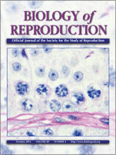
BIOLOGY OF REPRODUCTION
Shaping the Future of Reproductive ResearchBIOLOGY OF REPRODUCTION is a premier journal published by Oxford University Press Inc, dedicated to advancing research in the fields of reproductive biology, cell biology, and reproductive medicine. With an impressive impact factor and a strong ranking as Q1 in reproductive medicine and miscellaneous medicine, as well as Q2 in cell biology, this journal offers a vital platform for disseminating innovative findings and pivotal studies that shape our understanding of reproductive processes. Since its inception in 1969, BIOLOGY OF REPRODUCTION has become a key resource for scientists, clinicians, and students alike, providing insights that drive the future of reproductive health and research. Although not an open-access publication, it remains a respected authority, reflecting a commitment to high-quality peer-reviewed articles. The journal's comprehensive scope includes molecular and cellular aspects of reproduction, reproductive health, and associated technologies, making it indispensable for professionals looking to stay at the forefront of breakthroughs within the field.